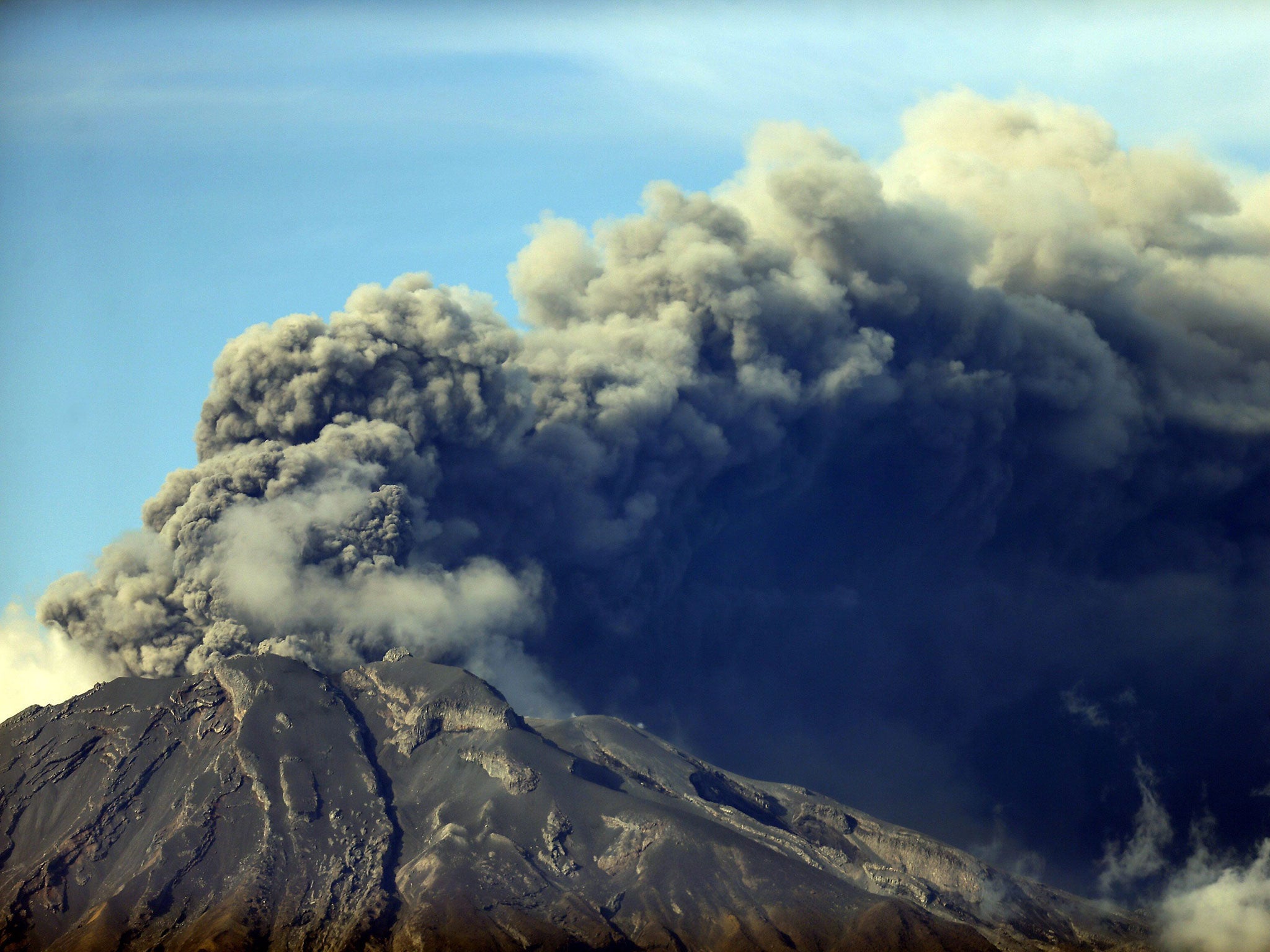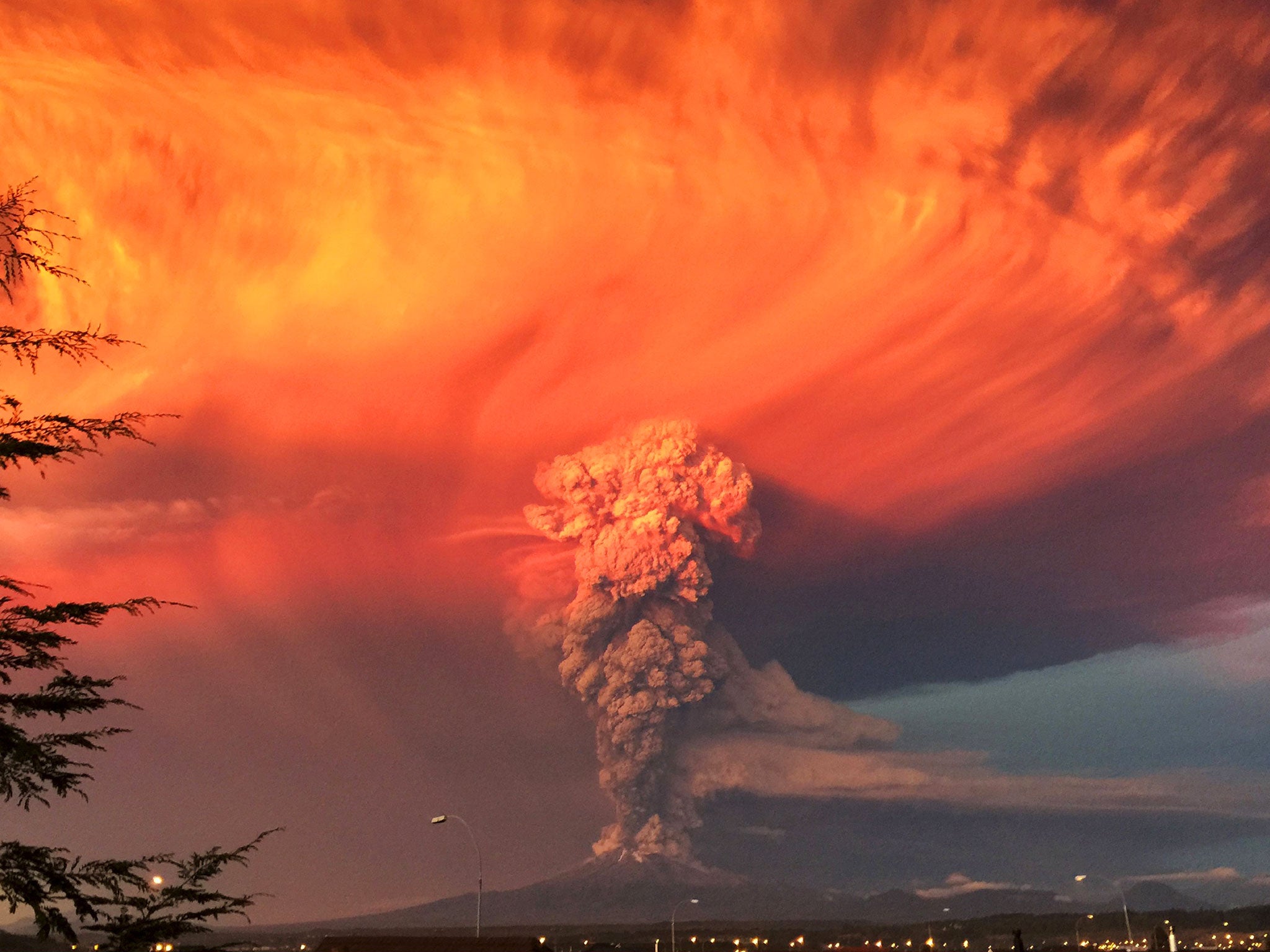1,500 are evacuated following third Calbuco volcano eruption in Chile, with experts warning of acid rain and deadly mud flows
The total number of evacuees is now estimated at 4,500

A third explosion in two weeks has led to the evacuation of a further 1,500 people from the area surrounding the Calbuco volcano, Chile, as experts warn of the possibility of acid rain and volcanic mud flows.
Volcano expert, Moyra Gardeweg, has now suggested that the combination of wet weather and volcanic ash could lead to the formation of acid rain strong enough to cause damage to metals and plant life and pollute water sources.
The rain could also lead to devastating volcanic mud flows, known as lahars, capable of levelling anything in their path once in motion, according to the National Mining and Geology service.

Thursday’s eruption, which came as residents were attempting to clean up after two previous explosions, saw thick clouds of ash and hot rock billowing out of the 2,000 metre volcano.
Chilean officials then ordered the evacuation of approximately 1,500 local residents.
The surrounding area was initially evacuated after the volcano erupted last Wednesday afternoon, but many people had begun to return to their homes.
Deputy Interior Minister Mahmud Aleuy told a news conference that although the third eruption was smaller than the other two, the evacuation was being carried out as a precaution.
The eruptions at Calbuco were the first in more than four decades.
Over in total 4,500 people have been evacuated since the Calbuco volcano became active on April 22, when it began blasting ash over 10 miles into the sky.
The ash from the earlier two eruptions spread across the southern part of the continent, disrupting flights all the way to Argentina's capital, Buenos Aires, and causing widespread economic damage by turning cattle pastures barren and choking fish in one of the world's top salmon-producing countries.
AP
Join our commenting forum
Join thought-provoking conversations, follow other Independent readers and see their replies
Comments